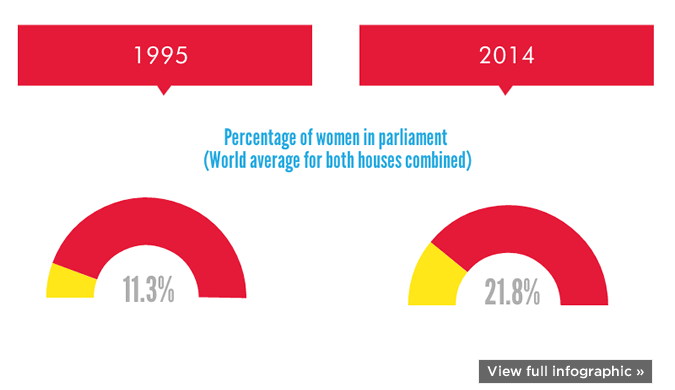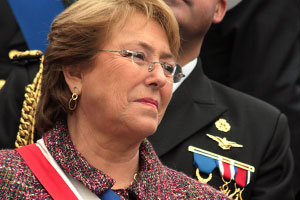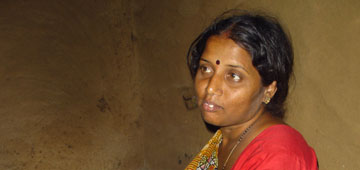Women in Power and Decision-making
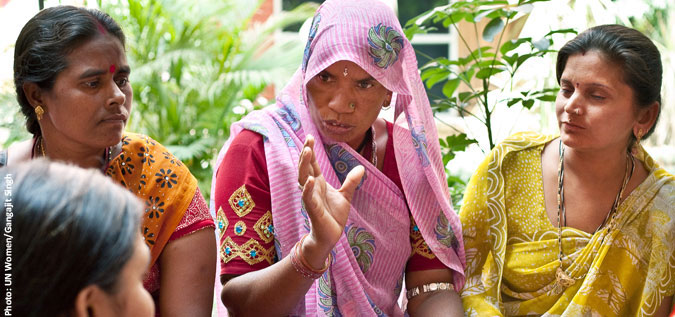
Women are often dynamic leaders of change, galvanizing women and men to get involved, claim their rights, strengthen their communities and protect their planet. Their participation is fundamental to democratic governance. Yet women still have far to go towards equal representation in positions of power and leadership, whether in corporate boardrooms or presidential cabinets.
Discriminatory laws and practices hold women back, as do limits on education, income and time away from caregiving. Just over 21 per cent of parliamentarians are women, up from around 11 per cent when the Beijing Fourth World Conference on Women took place in 1995. While women have made inroads in many areas, at the current pace of change, we won’t see gender parity in governments, parliaments or peace tables until the next century.
The Beijing conference agreement, known as the Platform for Action, dubbed women in power and decision-making one of 12 critical areas of concern. It made two essential commitments to change. First, it called for measures ensuring women’s equal access to and full participation in power structures and decision-making. Political quotas or positive measures are examples of these. By reserving seats or candidacies for women, they have driven dramatic increases in the number of women leaders in some countries. Second, the Platform urged steps to increase women’s ability to participate. Training on leadership, public speaking and political campaigning, for instance, grooms women to compete, win and be good leaders who can inspire others.
Women have a right to equal participation. Once in leadership roles, they can make a difference that benefits whole societies. The Inter-Parliamentary Union has found that women politicians give more attention to social welfare and legal protections, and improve trust. Taking up the Beijing commitments and rallying around women’s leadership could accelerate progress towards equal participation—right now. We can’t wait until the next century!
Fast facts
IN THE WORDS OF...
Michelle Bachelet – Once we make this dream a reality…
Michelle Bachelet was sworn-in for a second term as President of Chile in March 2014. Previously, she was the first Executive Director of UN Women, from its inception in 2010 until March 2013. A longstanding women's rights advocate, she has promoted gender equality and empowerment of women throughout her distinguished political career, including as her country's first female President, between 2006 and 2010. In this editorial, she says nearly 20 years after the adoption of the Beijing Declaration and Platform for Action, we must recognize significant progress, but challenges remain in terms of gender equality and equity.
ARTICLES
Philippines
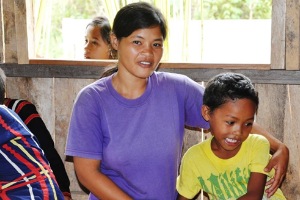 The Dibabawon indigenous people live in the remote Calinogan community of Compostela Valley Province, Mindanao. I travelled for seven hours from Manila, by plane, car, and finally on a local ‘skylab’ motorbike along unpaved roads through lush forests, to reach this community of 256 people.
The Dibabawon indigenous people live in the remote Calinogan community of Compostela Valley Province, Mindanao. I travelled for seven hours from Manila, by plane, car, and finally on a local ‘skylab’ motorbike along unpaved roads through lush forests, to reach this community of 256 people.
Read more »
Pakistan
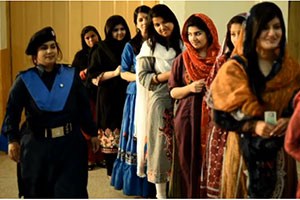 An historic 15 million women voted in Pakistan’s recent general elections in May 2013 – 40 per cent of all votes. They were counted for the first time thanks to efforts by the Election Commission of Pakistan and UN Women. They also ran a voter education campaign, with direct outreach through local civil society networks, reaching more than 1 million women. To encourage women to cast their ballots, UN Women also helped produce songs, TV commercials and dramas, estimated to have reached more than 25 million people.
An historic 15 million women voted in Pakistan’s recent general elections in May 2013 – 40 per cent of all votes. They were counted for the first time thanks to efforts by the Election Commission of Pakistan and UN Women. They also ran a voter education campaign, with direct outreach through local civil society networks, reaching more than 1 million women. To encourage women to cast their ballots, UN Women also helped produce songs, TV commercials and dramas, estimated to have reached more than 25 million people.
China
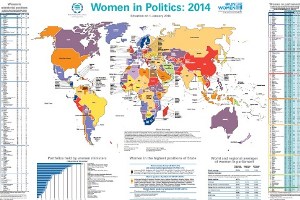 As part of efforts to gather information and raise awareness, UN Women and the All-China Women’s Federation (ACWF) held a two-day workshop in Beijing in January 2013. The first “Asia-Pacific Workshop on Promoting and Monitoring Women’s Political Participation” gathered 70 governmental and non-governmental leaders in one of the regions with the lowest number of women in politics. They called for effective measures to increase the number of women in political decision-making at all levels.
As part of efforts to gather information and raise awareness, UN Women and the All-China Women’s Federation (ACWF) held a two-day workshop in Beijing in January 2013. The first “Asia-Pacific Workshop on Promoting and Monitoring Women’s Political Participation” gathered 70 governmental and non-governmental leaders in one of the regions with the lowest number of women in politics. They called for effective measures to increase the number of women in political decision-making at all levels.
Thailand
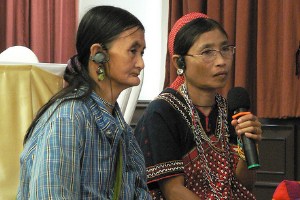 To overcome their invisibility and lack of public voice, in Southeast Asia, indigenous women from eight countries found common ground during a consultation on violence against indigenous women worsened or caused by economic development projects. Held in Chiang Mai, Thailand, it was organized by the Asia Indigenous Peoples' Pact (AIPP) and supported by UN Women under its Regional Programme on Improving Women's Human Rights in Southeast Asia. The meeting is part of work to connect indigenous women with each other and with experts, and provide them with the skills they need to define and respond to pressing issues.
To overcome their invisibility and lack of public voice, in Southeast Asia, indigenous women from eight countries found common ground during a consultation on violence against indigenous women worsened or caused by economic development projects. Held in Chiang Mai, Thailand, it was organized by the Asia Indigenous Peoples' Pact (AIPP) and supported by UN Women under its Regional Programme on Improving Women's Human Rights in Southeast Asia. The meeting is part of work to connect indigenous women with each other and with experts, and provide them with the skills they need to define and respond to pressing issues.
In Thailand, indigenous women have joined the fight for justice -- and for the future of their people. UNTV's 21st Century news magazine tells their story in this feature video produced for UN Women.
Editor's picks
A tale of three decisions
Where: India
Organization: Food and Agriculture Organization
Hansaben lives in a small village in the Indian state of Gujarat, south of Ahmedabad, with her husband and their young son. Her daughter is older and lives with her husband in a nearby city. Hansaben has made three decisions that changed her life for the better.
Women Sow Seeds of Hope in Mindanao
Where: Philippines
Organization: World Food Programme
A series of farming projects on the Philippines island of Mindanao are helping women displaced by years of conflict rebuild their lives. With WFP's support, they started a communal garden for women, which is helping them build a voice in their communities.
New project in China training women leaders
Where: China
Organization: UNDEF
UN in Action looks at a pilot project, supported by the United Nations Democracy Fund (UNDEF), to increase the number of women leaders was launched in the remote village of Qing Xi. Training is conducted in leadership, management and decision-making skills. The project also aims to change the male perception of women's role so they can help support women to raise their voices and shape a new future for China.
Resources
- Women in Politics map (IPU, UN Women, 2014)
- Gender equality in public administration (UNDP, 2014)
- UN Women's Constitutional Database (UN Women, 2014)
- Guidelines for Women's Caucuses (IPU, 2013)
- The Role of UNDP in Promoting Democratic Elections in Africa (UNDP, 2013)
- iKNOW Politics portal (IPU, IDEA, NDI, UNDP, UN Women, 2014)
- Fund for Gender Equality (UN Women, 2014)

